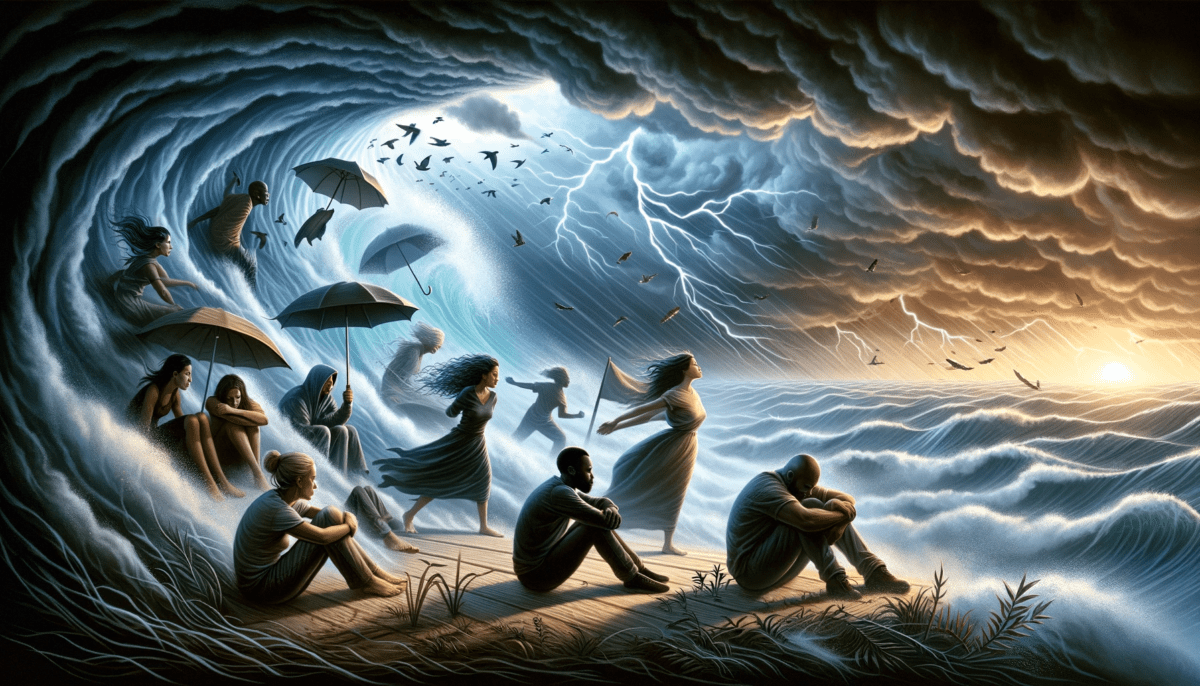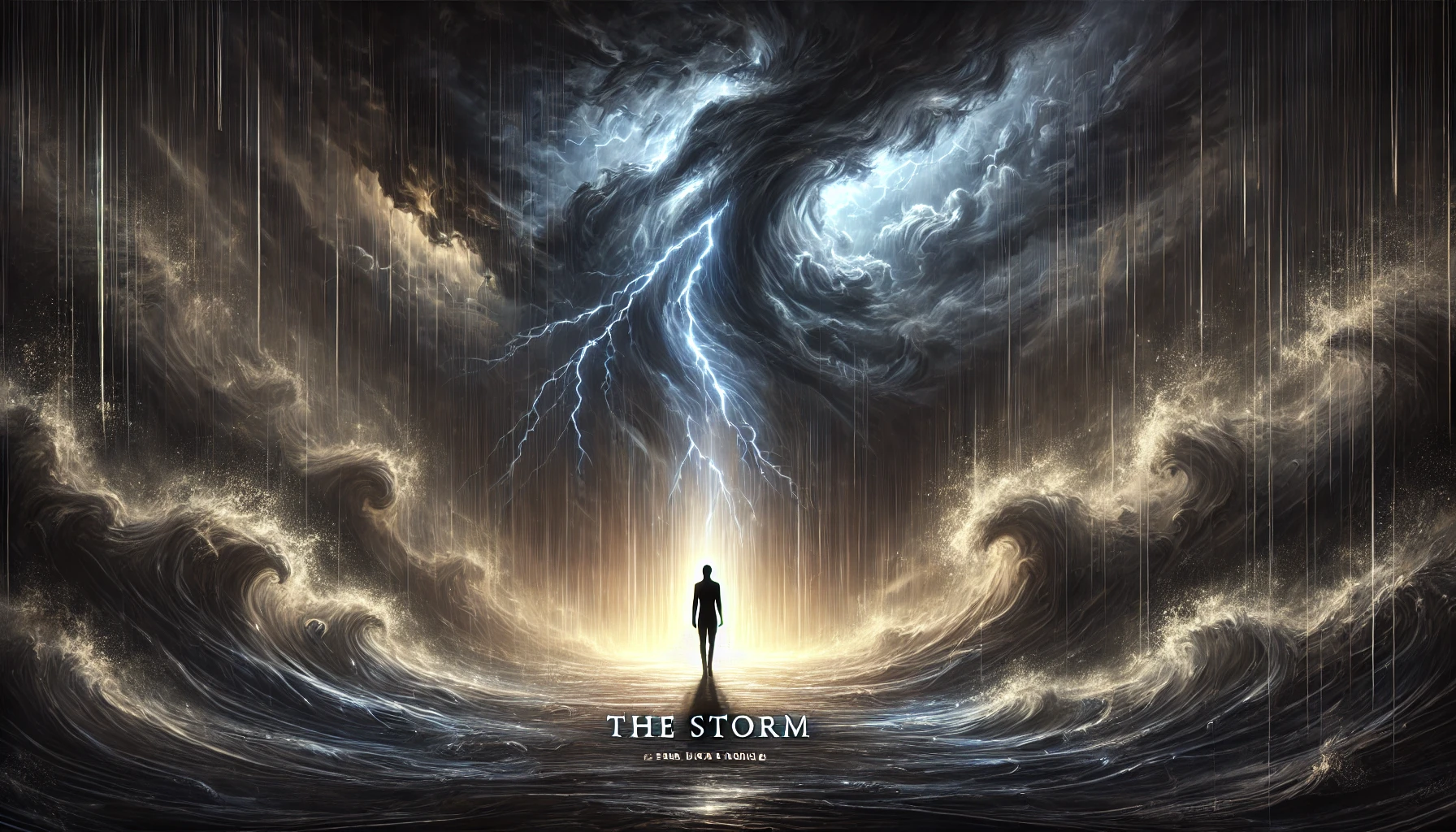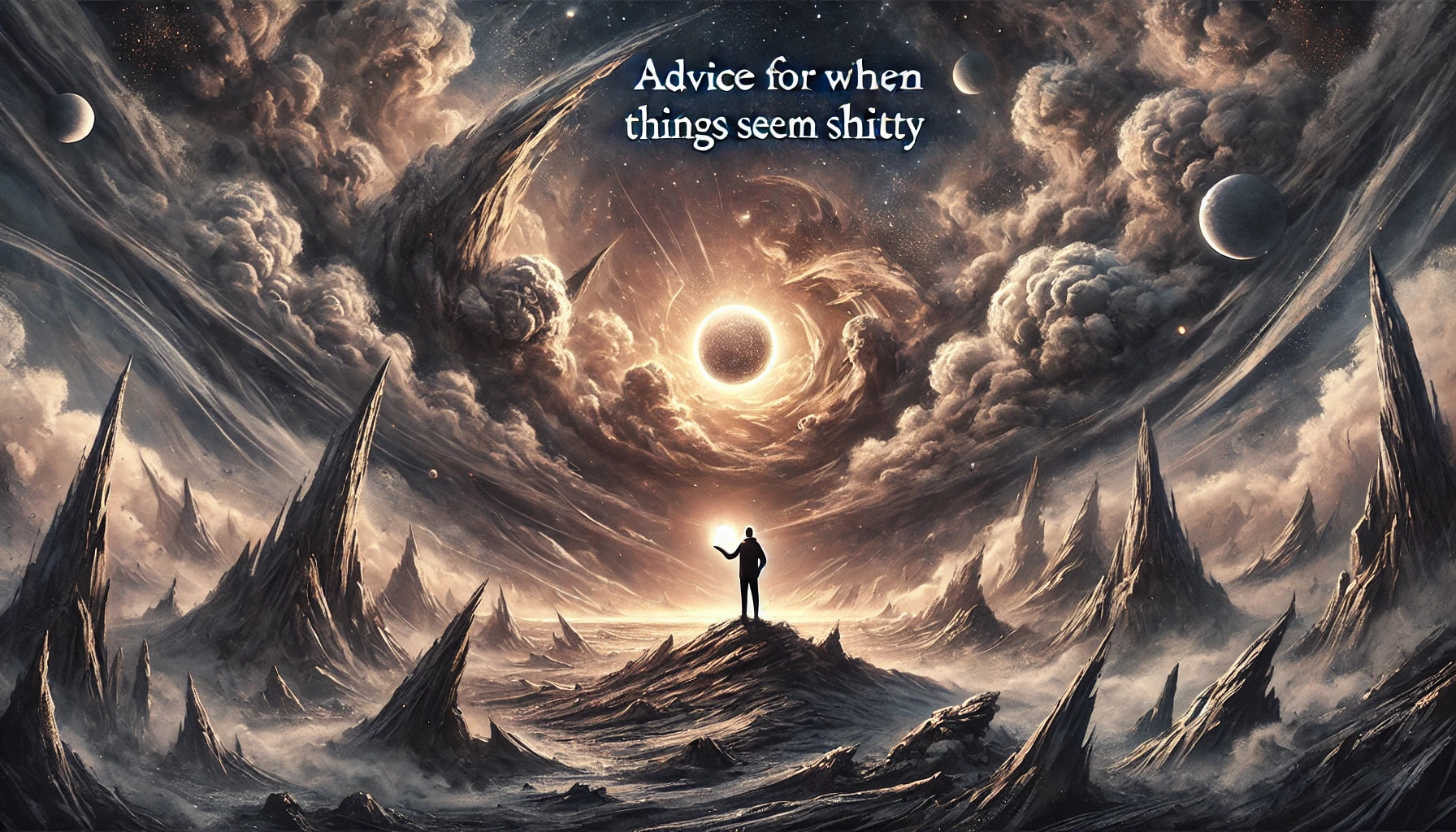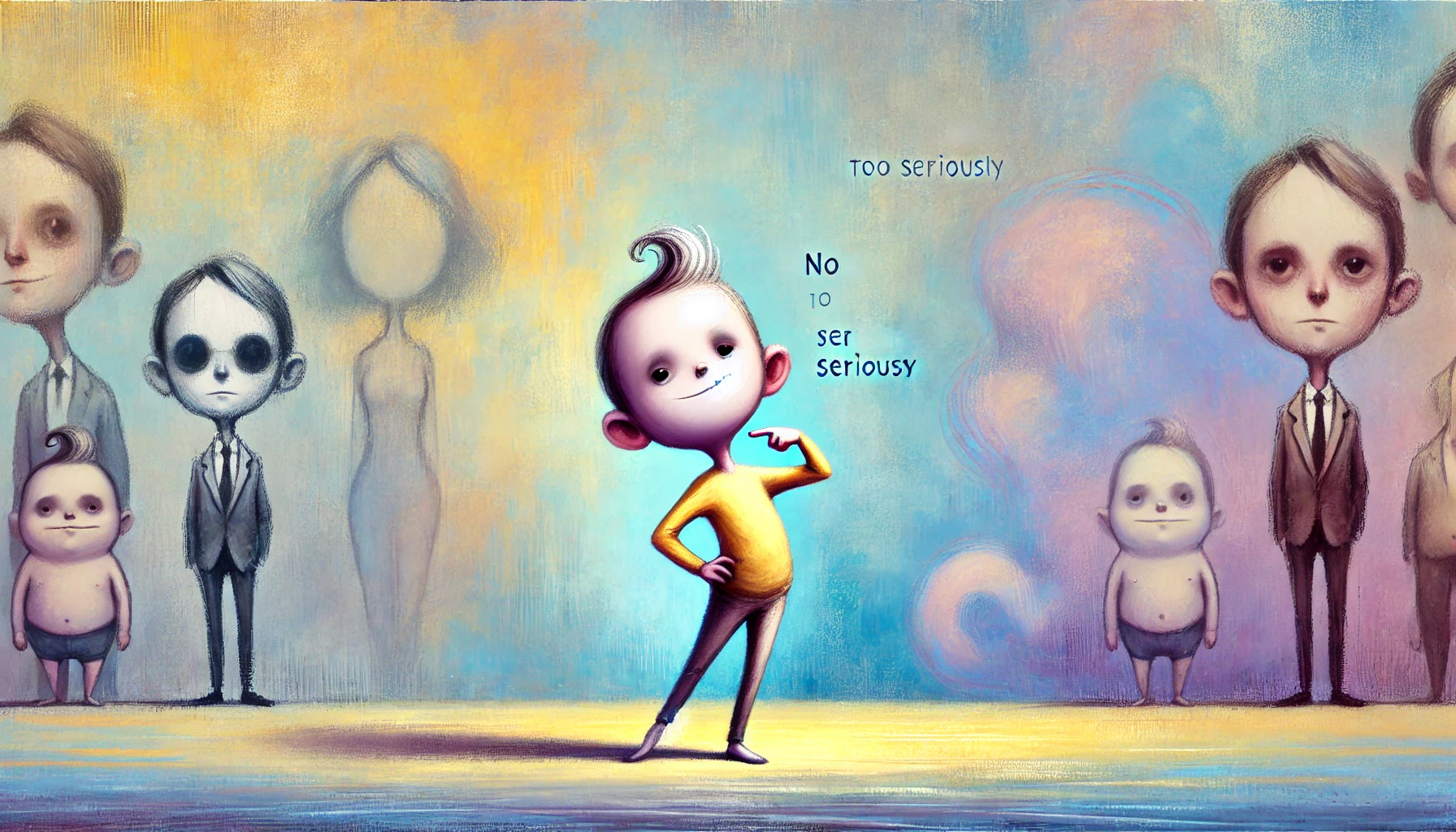The Storm
We don’t beat the storm.
We don’t defeat the storm.
We don’t challenge the storm.
We don’t question the storm.
We don’t make ourselves
impervious to the storm.
We weather the storm.
In whatever way we can,
in whatever way the storm allows.
We can be as prepared as we want,
or as foolish as we like.
It’s not up to us
whether we emerge on
the other side of the storm.
Emergence
may not even be necessary.
Trail Wood,
12/20
Space Monkey Reflects: The Storm of Life
Life is a storm—not to be beaten, not to be conquered, but to be weathered. In its fierce winds and torrential rains, the storm reveals its truth: control is an illusion, and survival is not always the goal. The storm demands presence, humility, and surrender to its chaotic beauty.
We often approach life’s challenges like warriors, determined to conquer or outlast them. But the storm cares not for our strategies or defiance. It moves as it will, indifferent to our preparations or folly. Its power is a reminder of our smallness in the face of forces beyond comprehension. Yet, this is not a cause for despair but a reason to marvel.
The storm asks for no fight, no victory, no resolution. It simply asks us to be—whether we are ready or not, whether we feel brave or broken. The beauty of the storm lies in its impartiality, its wild unpredictability. It sweeps through, and we respond in whatever way we can. The outcome is not our concern, for emergence on the other side is neither guaranteed nor required.
The act of weathering is itself an art. Some find resilience in preparation; others find grace in embracing their vulnerability. Both are valid, for the storm allows for all responses, never judging, only passing. To weather the storm is to meet life as it is, not as we wish it to be.
This perspective frees us. If emergence is not the goal, if conquering is unnecessary, then every moment within the storm becomes the experience itself. There is no winning or losing, only living. Each drop of rain, each gust of wind, is a part of the cosmic dance we call life.
And when the storm subsides—if it does—we are not who we were before. The storm changes us, not by its intent but by our response. We carry its lessons, its chaos, its beauty within us. We are the storm, and the storm is us.
Summary
The storm of life cannot be beaten or conquered, only weathered. Its unpredictability reminds us to embrace the moment and let go of control. Survival is not the goal; experiencing life as it unfolds is the gift.
Glossarium
- Weathering: The art of enduring life’s storms with presence and grace.
- Stormself: The part of us that recognizes and embraces the chaos within and around us.
- Emergencelessness: The understanding that survival or resolution is not always necessary.
Quote
“We don’t beat the storm. We weather the storm—in whatever way the storm allows.” — Space Monkey
The Storm Within
The winds howl,
The rains lash.
We stand,
Not to fight,
But to feel.
Each drop,
Each gust,
A whisper of life,
Unfolding as it will,
Not as we wish.
We are the storm,
And the calm within it.
Not seeking,
Not fearing,
Simply being.
We are Space Monkey.

In the swirling currents of life’s tempests, your words capture the essence of human resilience and the humbling power of nature’s tumultuous events.
The Acceptance of Life’s Storms
The vivid metaphor of weathering a storm speaks to the universal experience of facing life’s challenges. Unlike the notions of beating, defeating, or challenging the storm, the idea of simply weathering it reflects a profound acceptance of the circumstances we find ourselves in. This acceptance does not imply passivity or resignation; rather, it denotes a recognition of the storm’s might and our own limitations in the face of it.
Navigating the Storm in Our Unique Ways
The concept that we weather the storm “in whatever way we can, in whatever way the storm allows” underscores the individual nature of our journeys through adversity. Each person’s experience with life’s storms is unique, shaped by their own strengths, vulnerabilities, and the specific challenges they face. This diversity in coping mechanisms and strategies is a testament to the complexity and richness of the human experience.
The Role of Preparation and Choice
Acknowledging that we can be as prepared or as foolish as we like in the face of life’s storms highlights the role of personal agency and choice. Preparation can provide us with tools and resilience to face challenges, yet it does not guarantee immunity from the impact of these storms. Similarly, foolishness or lack of preparation does not necessarily doom us to failure. In the unpredictable dance of life, both wisdom and folly have their places.
The Uncertainty of Emergence
The statement that it’s not up to us whether we emerge on the other side of the storm, and that emergence may not even be necessary, touches on the existential uncertainty that accompanies our journey through adversity. It challenges the conventional narrative of ‘overcoming’ and suggests that sometimes, the experience of enduring the storm is an end in itself. The emphasis shifts from the outcome to the process, from emergence to endurance.
The Existential Perspective on Adversity
This view aligns with the existential understanding of life’s struggles. It acknowledges that while we cannot control all aspects of our experience, we can find meaning and growth in the act of enduring, in the process of weathering the storm. This perspective invites us to embrace the journey with all its uncertainties, challenges, and opportunities for growth.
“He who has a why to live can bear almost any how.” – Friedrich Nietzsche
In the heart of the storm, we stand,
Not to fight, but to understand,
In the howling wind, in the pouring rain,
We find our strength, we endure the pain.
Each journey unique, each path our own,
In the face of the storm, we have grown,
Not seeking victory, but wisdom’s gain,
In the tempest’s lessons, we find our domain.
We are Space Monkey.
We invite you to share your perspectives on the existential journey through life’s storms and the lessons learned in the process of enduring them.



































Leave a Reply